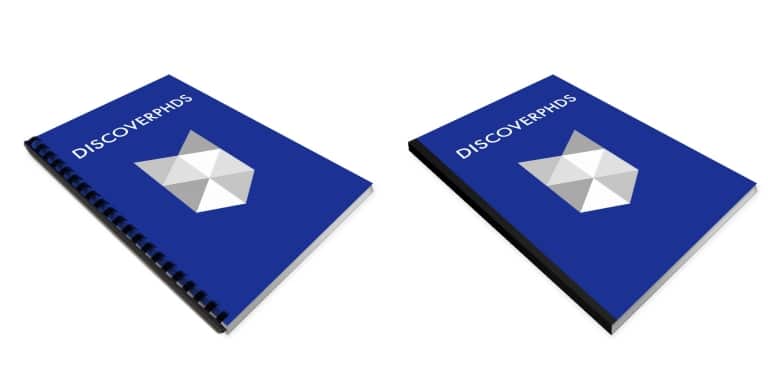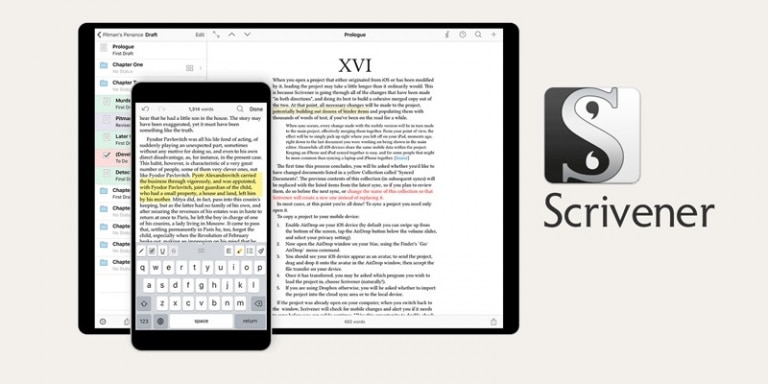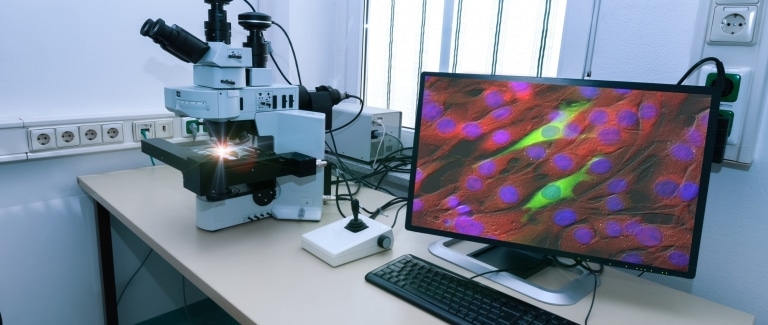Community Blog
Keep up-to-date on postgraduate related issues with our quick reads written by students, postdocs, professors and industry leaders.


Don’t Let Research Overwhelm You: Writing Habits that Work
There’s no doubt about it – writing can be difficult. Whether you’re writing the first sentence of a paper or a grant proposal, it’s easy


You’re Not Alone: Here’s How to Cope With Impostor Syndrome
Impostor Syndrome is a common phenomenon amongst PhD students, leading to self-doubt and fear of being exposed as a “fraud”. How can we overcome these feelings?


5 Ways to Combat PhD Stress
PhD stress is real. Learn how to combat it with these 5 tips.


Using Reference Management Software
Reference management software solutions offer a powerful way for you to track and manage your academic references. Read our blog post to learn more about what they are and how to use them.


Ending the Procrastination Trap
Are you always finding yourself working on sections of your research tasks right up until your deadlines? Are you still finding yourself distracted the moment


Do you need to have published papers to do a PhD?
Do you need to have published papers to do a PhD? The simple answer is no but it could benefit your application if you can.


What is an Academic Transcript?
An academic transcript gives a breakdown of each module you studied for your degree and the mark that you were awarded.


Thesis binding and printing options
Find out the different dissertation and thesis binding options, which is best, advantages and disadvantages, typical costs, popular services and more.


What is the Thurstone Scale?
The Thurstone Scale is used to quantify the attitudes of people being surveyed, using a format of ‘agree-disagree’ statements.


Annotated Bibliography vs Literature Review
Find out the differences between a Literature Review and an Annotated Bibliography, whey they should be used and how to write them.


How do you Write the Rationale for Research?
The term rationale of research means the reason for performing the research study in question.


What is a Monotonic Relationship?
The term monotonic relationship is a statistical definition that is used to describe the link between two variables.


What is a Research Instrument?
The term research instrument refers to any tool that you may use to collect, measure and analyse research data.


What is the Difference between In Review and Under Review?
This post explains the difference between the journal paper status of In Review and Under Review.


What is an In Press Article?
An In Press article is a paper that has been accepted for publication and is being prepared for print.


Are Elements Capitalized?
When you should and shouldn’t capitalise the names of chemical compounds and their abbreviations is not always clear.


The Unit of Analysis Explained
The unit of analysis refers to the main parameter that you’re investigating in your research project or study.


Types of Research – Explained with Examples
There are various types of research that are classified by objective, depth of study, analysed data and the time required to study the phenomenon etc.


Scope and Delimitations – Explained & Example
The scope and delimitations of a thesis, dissertation or paper define the topic and boundaries of a research problem – learn how to form them.


What is Self-Plagiarism, What is the Impact and How do you Avoid It?
Self-plagiarism is when you try and pass off work that you’ve previously done as something that is completely new.


How to Write the List of Figures for a Thesis or Dissertation
This post explains where and how to write the list of figures in your thesis or dissertation.


How to Write a Figure Legend
A well written figure legend will explain exactly what a figure means without having to refer to the main text. Our guide explains how to write one.


Multistage Sampling
Multistage sampling is a more complex form of cluster sampling for obtaining sample populations. Learn their pros and cons and how to undertake them.


List of Abbreviations for a Thesis or Dissertation
Need to write a list of abbreviations for a thesis or dissertation? Read our post to find out where they go, what to include and how to format them.


What is Research? – Purpose of Research
The purpose of research is to enhance society by advancing knowledge through developing scientific theories, concepts and ideas – find out more on what this involves.


Statistical Treatment of Data – Explained & Example
Statistical treatment of data is essential for all researchers, regardless of whether you’re a biologist, computer scientist or psychologist, but what exactly is it?


Abstract vs Introduction – Differences Explained
An abstract and introduction are the first two sections of your paper or thesis. This guide explains the differences between them and how to write them.


What is a Science Investigatory Project?
A science investigatory project is a science-based research project or study that is performed by school children in a classroom, exhibition or science fair.


What is a Concept Paper and How do You Write One?
A concept paper is a short document written by a researcher before starting their research project, explaining what the study is about, why it is needed and the methods that will be used.


How to Format a PhD Synopsis (India)
This article will answer common questions about the PhD synopsis, give guidance on how to write one, and provide my thoughts on samples.


How to Write the Scope of the Study
The scope of the study is defined at the start of the study. It is used by researchers to set the boundaries and limitations within which the research study will be performed.


What is the Significance of the Study?
In this post you’ll learn what the significance of the study means, why it’s important, where and how to write one in your paper or thesis with an example.


Questions to Ask During Your PhD Interview
This post gives you the best questions to ask at a PhD interview, to help you work out if your potential supervisor and lab is a good fit for you.


Finland’s PhD Sword and Hat Tradition
In Finland, all new PhD holders are given a traditional Doctoral Hat and Doctoral Sword during a Conferment Ceremony, symbolising the freedom of research.


5 Things to Consider Before Doing a PhD While Working
Is it really possible to do a PhD while working? The answer is ‘yes’, but it comes with several ‘buts’. Read our post to find out if it’s for you.


What Should You Call a Professor?
You’ll come across many academics with PhD, some using the title of Doctor and others using Professor. This blog post helps you understand the differences.


What’s the Difference between a Dissertation and a Thesis
In the UK, a dissertation, usually around 20,000 words is written by undergraduate and Master’s students, whilst a thesis, around 80,000 words, is written as part of a PhD.


Academic Conferences are Expensive. Are they really worth it?
Academic conferences are expensive and it can be tough finding the funds to go; this naturally leads to the question of are academic conferences worth it?


What Is The Age Limit for A PhD?
The answer is simple: there is no age limit for doing a PhD; in fact, the oldest known person to have gained a PhD in the UK was 95 years old.


The MBA vs PhD Debate
Considering whether to do an MBA or a PhD? If so, find out what their differences are, and more importantly, which one is better suited for you.


Thesis and Dissertation Appendicies – What to Include
A thesis and dissertation appendix contains additional information which supports your main arguments. Find out what they should include and how to format them.


The Dissertation Title Page
The title page of your dissertation or thesis conveys all the essential details about your project. This guide helps you format it in the correct way.


What Makes A Good PhD Supervisor?
Choosing a good PhD supervisor will be paramount to your success as a PhD student, but what qualities should you be looking for? Read our post to find out.


7 Tips for New Graduate Teaching Assistants
Being a new graduate teaching assistant can be a scary but rewarding undertaking – our 7 tips will help make your teaching journey as smooth as possible.


10 Ways to Impress a PhD Supervisor
Learn 10 ways to impress a PhD supervisor for increasing your chances of securing a project, developing a great working relationship and more.


What Is Tenure Track?
Tenure is a permanent position awarded to professors showing excellence in research and teaching. Find out more about the competitive position!


The Power of Body Language in PhD Interviews
You’ve impressed the supervisor with your PhD application, now it’s time to ace your interview with these powerful body language tips.


How to Build a Research Collaboration
Learning how to effectively collaborate with others is an important skill for anyone in academia to develop.


Using Scrivener for PhD Thesis & Dissertations
Find out how you can use Scrivener for PhD Thesis & Dissertation writing to streamline your workflow and make academic writing fun again!


What is Scientific Misconduct?
Scientific misconduct can be described as a deviation from the accepted standards of scientific research, study and publication ethics.


8 Tips for Surviving Fieldwork
Fieldwork can be essential for your PhD project. Use these tips to help maximise site productivity and reduce your research time by a few weeks.


Covid-19 Guidance For Current And Prospective PhD Students
Stay up to date with current information being provided by the UK Government and Universities about the impact of the global pandemic on PhD research studies.


Using Technology to Increase Academic Productivity
Learn more about using cloud storage effectively, video conferencing calling, good note-taking solutions and online calendar and task management options.


Working from Home as A Research Student
Learn about defining your workspace, having a list of daily tasks and using technology to stay connected, all whilst working from home as a research student.


5 Tips for Preparing for Your PhD Viva
If you’re about to sit your PhD viva, make sure you don’t miss out on these 5 great tips to help you prepare.


5 Tips for A New PhD Student
Starting your PhD can feel like a daunting, exciting and special time. They’ll be so much to think about – here are a few tips to help you get started.


A Guide to Your First Week as A PhD Student
How should you spend your first week as a PhD student? Here’s are 7 steps to help you get started on your journey.


4 Tips for Applying to a PhD
Thinking about applying to a PhD? Then don’t miss out on these 4 tips on how to best prepare your application.
PhD Advice
Gain valuable insight from our collection of exclusive interviews with both current and past PhD students. Learn from their best advice, personal challenges and career path after completing their doctorate.
View Overview